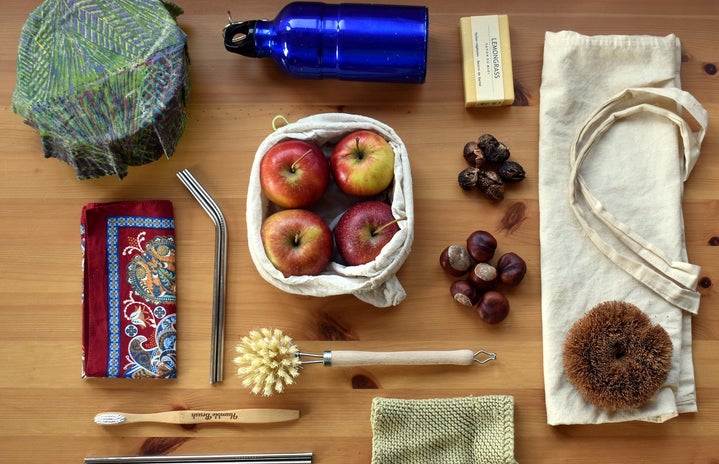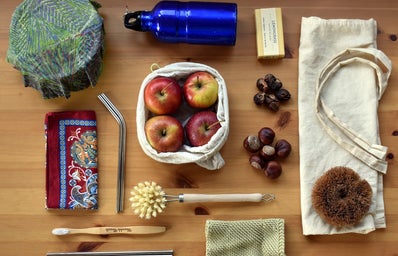The idea of going zero-waste can seem daunting and not exactly budget-friendly. There’s a common misconception that you need to do the absolute most and buy all new products to help you with your zero-waste journey. While that is perfectly fine, an important aspect of trying to be zero-waste is using the items you already have in new and innovative ways. I’ve compiled a few tips that have personally helped me reduce my waste while saving money.
Compost Your Food Scraps
When food scraps decompose in a landfill, they produce methane. Methane is one of the main greenhouse gases that contribute to global warming. The US Environmental Protection Agency estimates that food materials have been sent to the landfill more than any other material in our everyday trash. With this information, it is vital that we try and prevent our food scraps from going into landfills.
A great way to combat this is to compost your food scraps right at home. You can even compost in an apartment! Check out this how-to guide for more info.
If you aren’t too keen on using worms in your compost, there is an alternative method that is just as efficient. For this alternative mix, use a 3:1 ratio of brown material (leaves, twigs, coffee filters, cardboard, shredded paper, or cotton rags) to green material (grass, food scraps, coffee grounds, and lint). Keep the mixture moist and occasionally stir to aerate the compost.
With time, your scraps should break down and you will be left with rich, dark brown soil. This soil can be added as a fertilizer to your potted plants for extra nutrition.

Make Your Own Reusable Cleaning Cloths and Cleaning Solution
Have any towels, shirts, or linens that are too damaged to be donated? Instead of throwing them away, use a pair of scissors to cut up the fabric to make cleaning cloths. This is a great alternative to paper towels.
Use any leftover cloth as a substitute for cotton rounds. Not only does this prevent waste, but it also saves you money.
You can also make your own cleaning solution using a 4:1 ratio of water to white vinegar. This cleaner works great for walls, water stains, and floors.
Alternatively, you can use a mix of baking soda and water to clean stainless steel and kitchen counters.

While shopping, try to be aware of zero-waste principles. Buy products that have the least plastic packaging. Bring your own cotton bags for produce. Try to buy secondhand at thrift stores.
By keeping these small but powerful ideas in mind, we can become more conscious of how environmentally impactful our shopping is.
There is no perfect way to be zero-waste. With how our society is structured, it is near impossible to be completely zero-waste. And that’s okay! The main goal is to try and implement meaningful ways to reduce waste in our lives.
Any step toward being less wasteful is a step in the right direction.



